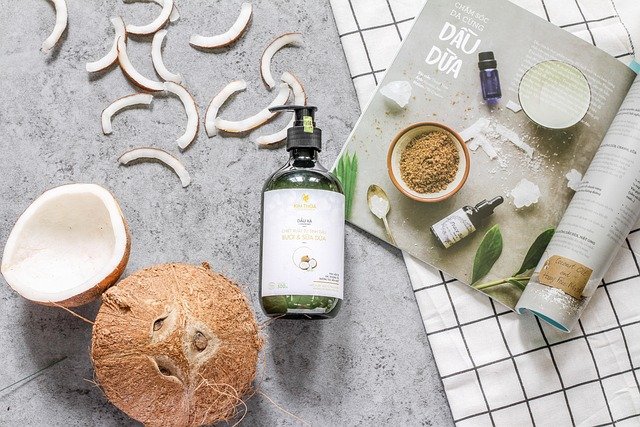Fungal Fitness: The Mushroom Boom in Beauty and Wellness
The world of beauty and wellness is experiencing a fungal revolution, with mushrooms emerging as the latest superstar ingredient. This isn't about psychedelic trips or culinary delights, but rather the incorporation of various mushroom species into skincare, supplements, and fitness routines. From adaptogenic powders to topical serums, fungi are infiltrating every aspect of our self-care regimens. This surge in popularity isn't just a fleeting trend, but a rediscovery of ancient wisdom backed by modern science. As consumers become more discerning about what they put on and in their bodies, mushrooms offer a natural, sustainable, and effective solution to various beauty and wellness concerns.

Fungi are unique organisms, neither plant nor animal, with complex chemical compositions that make them ideal for various applications. They’re rich in polysaccharides, terpenoids, and other bioactive compounds that can have profound effects on human health and appearance. What sets mushrooms apart is their ability to thrive in harsh environments, developing defense mechanisms that, when harnessed, can benefit human cells.
Mushroom Skincare: More Than Skin Deep
The skincare industry has been quick to capitalize on the fungal frenzy. Brands are incorporating mushroom extracts into everything from cleansers to night creams. The most popular species in skincare include chaga, reishi, and tremella.
Chaga, often called the “King of Mushrooms,” is loaded with antioxidants that help combat free radical damage and reduce signs of aging. Its melanin content also offers natural UV protection, making it a valuable addition to day creams and sunscreens.
Reishi, known as the “mushroom of immortality” in Chinese medicine, has powerful anti-inflammatory properties. In skincare, it helps soothe irritated skin, reduce redness, and promote a more even complexion. Some studies suggest it may even help with eczema and other inflammatory skin conditions.
Tremella, or snow mushroom, is gaining popularity as a natural alternative to hyaluronic acid. Its gelatinous structure allows it to hold up to 500 times its weight in water, making it an excellent hydrator. It also has a smaller particle size than hyaluronic acid, potentially allowing for better penetration into the skin.
Fungal Fitness: Mushrooms in Exercise and Recovery
The fitness world is also embracing the power of mushrooms, particularly for their adaptogenic properties. Adaptogens are substances that help the body adapt to stress, whether physical, mental, or environmental. In the context of fitness, this translates to improved endurance, faster recovery, and better overall performance.
Cordyceps has emerged as a star player in this arena. This parasitic fungus, which grows on caterpillar larvae in the wild (though most supplements use lab-grown versions), has been shown to increase oxygen uptake and improve aerobic capacity. A study published in the Journal of Alternative and Complementary Medicine found that supplementing with cordyceps improved exercise performance in healthy older adults.
Lion’s mane mushroom is another fungal favorite among fitness enthusiasts. Known for its cognitive-enhancing properties, it’s being used to improve focus and mental clarity during workouts. Some athletes report better mind-muscle connection and increased motivation when supplementing with lion’s mane.
The Mushroom Supplement Scene
The supplement market has seen an explosion of mushroom-based products. From capsules and powders to tinctures and elixirs, there’s no shortage of ways to incorporate fungi into your daily routine. Many of these supplements blend multiple mushroom species to create comprehensive formulas targeting everything from immune support to stress relief.
One notable trend is the rise of mushroom coffee and tea. These beverages infuse traditional coffee or tea with mushroom extracts, promising the energy boost of caffeine without the jitters or crash. Brands like Four Sigmatic have built entire product lines around this concept, offering convenient single-serve packets for on-the-go consumption.
Sustainability and Ethical Sourcing
As demand for mushroom-based products grows, sustainability and ethical sourcing have become critical issues. Wild mushrooms play crucial roles in their ecosystems, and overharvesting can have detrimental effects. Many companies are addressing this by using cultivated mushrooms or developing innovative extraction methods that minimize environmental impact.
Some brands are taking sustainability a step further by using mushrooms as packaging materials. Mycelium, the root-like structure of fungi, can be grown into molds and used as a biodegradable alternative to plastic. This circular approach to product development is gaining traction in the eco-conscious beauty and wellness space.
The Future of Fungal Beauty and Wellness
As research into the benefits of mushrooms continues, we can expect to see even more innovative applications in the beauty and wellness industries. Scientists are exploring the potential of mushrooms in everything from wound healing to mental health treatment.
One exciting area of development is the use of mushrooms in precision medicine. By analyzing an individual’s genetic makeup and microbiome, researchers hope to identify specific mushroom compounds that could offer personalized health and beauty benefits.
The fungal revolution in beauty and wellness is more than just a trend; it’s a paradigm shift towards more natural, sustainable, and holistic approaches to self-care. As we continue to uncover the vast potential of these remarkable organisms, mushrooms are poised to become a cornerstone of modern health and beauty regimens. From the skincare counter to the gym, the future of wellness is decidedly fungal.






